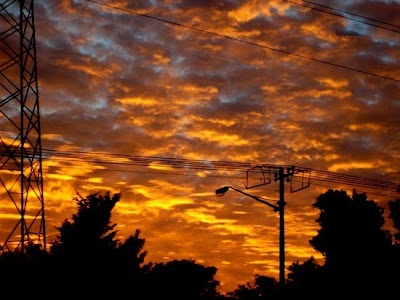Haiti is a tragedy for us all. It is a tragedy for you and me. It is a tragedy for Africa, for the poor countries of Asia, Latin America and the Caribbean. An earthquake is a global phenomenon, it can happen anywhere. It can happen in the US, in Europe and in Japan. So why then is it so destructive in its effects in the countries of the South? It is because of the failure of development. Haiti is a microcosm of the disastrous outcome of the failed so-called ‘development’ policies of the last thirty years in the South, and the destructive effects of foreign interventionist policies in the affairs of the poor countries of the South – from Somalia to Bangladesh to Haiti.
Jean-Bertrand Aristide, Haiti's first democratically elected president, in his passionate book, The Eyes of the Heart: Seeking a Path for the Poor in the Age of Globalization gives a graphic account of what happens when local economies and local initiatives of a poor country like Haiti are subordinated to the will of global finance and corporate power masked by the ideologies of ‘free trade’ and ‘development aid’. ‘In a world oriented only toward profit, it may be difficult for us to hear God's voice among the din and the racket of the moneychangers who have filled the world's temples’, he writes.
Organisations trying to bring aid to Haiti after the earthquake two weeks ago have criticised the actions of the US government, saying it looks more like a muilitary occupation than disaster relif, and some have said that priority has been given to bringing in armed sodiers, and humanitarian aid has been delayed.
Haitians Dying By The Thousands As US Escalates Military Intervention:
CNN’s Karl Penhaul reported from Port-au-Prince General Hospital, where US paratroopers have taken up positions. He said that Haitians questioned why so many US troops were pouring into the country. “They say they need more food and water and fewer guys with guns,” he reported.
He also indicated that American doctors at the hospital seemed mystified by the military presence. “They say there has never been a security problem here at the hospital, but there is a problem of getting supplies in.” He added, “They can get nine helicopters of troops in, but some of the doctors here say if they can do that, then why can’t they also bring with them IV fluids and other much needed supplies.”
There was much criticism of former US President George Bush for his tardy response to the devastation caused Hurricane Katrina a few years ago. Perhaps Presdent Barack Obama has learned from this, and was quick with the rhetoric and the photo-ops, but such action as there has been has been criticised as inappropriate.
Haiti: An Unwelcome Katrina Redux:
President Obama's response to the tragedy in Haiti has been robust in military deployment and puny in what the Haitians need most: food; first responders and their specialized equipment; doctors and medical facilities and equipment; and engineers, heavy equipment, and heavy movers. Sadly, President Obama is dispatching Presidents Bush and Clinton, and thousands of Marines and U.S. soldiers. By contrast, Cuba has over 400 doctors on the ground and is sending in more; Cubans, Argentinians, Icelanders, Nicaraguans, Venezuelans, and many others are already on the ground working--saving lives and treating the injured. Senegal has offered land to Haitians willing to relocate to Africa...
One Katrina survivor noted that the people needed food and shelter and the U.S. government sent men with guns. Much to my disquiet, it seems, here we go again. From the very beginning, U.S. assistance to Haiti has looked to me more like an invasion than a humanitarian relief operation.


